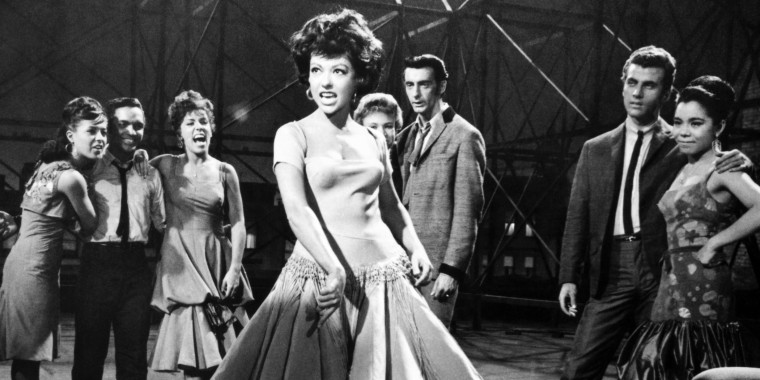In the past decade or so, Rita Moreno has received multiple lifetime achievement awards, and would probably receive even more -- except that she's too busy working.
The actress, who turns 89 on Dec. 11, is one of the few people to win an EGOT: Emmy, Grammy, Oscar and Tony. She's also received the 2004 Presidential Medal of Freedom, the 2009 National Medal of Arts, 2013 SAG Life Achievement Award, Kennedy Center Honors in 2015, and a Peabody Career Achievement in 2019, to name a few.
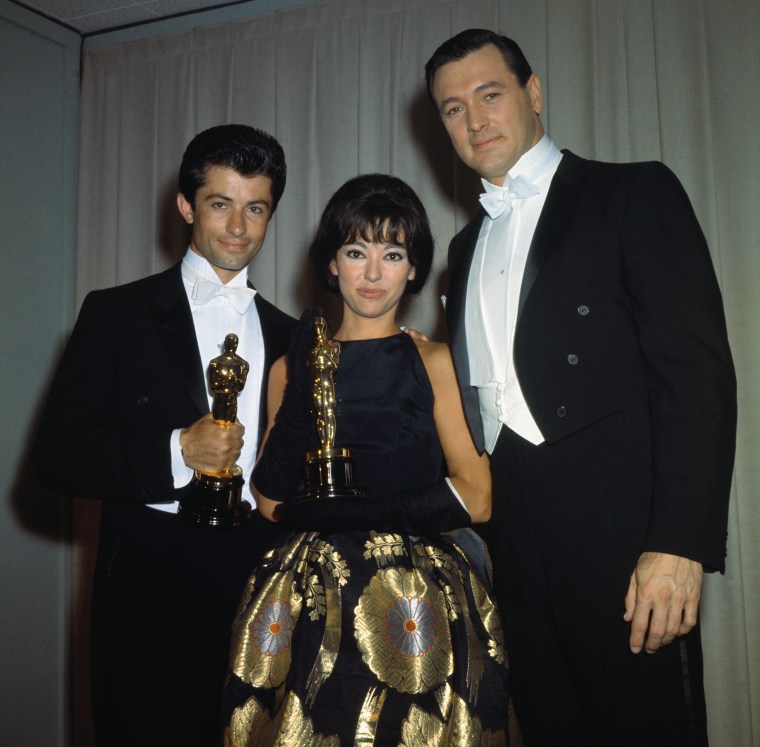
But she has no intention of resting on her laurels. In "Rita Moreno: A Memoir," she expresses frustration at not working more. "I still feel that way!" she told Variety shortly after the book came out in 2013. She is always busy: If it's not film, "I do theater, I do television, concerts, I do talks, lectures, I do a lot of fundraising as a performer."
Her 70-year career covers the spectrum of entertainment, including radio, theater, basic-cable, movies (both under the studio system and in the indie world) and now streaming.
She most recently starred in "One Day at A Time," Norman Lear's revamped sitcom, 2017-2020, and will be seen in 2021 in Steven Spielberg's version of "West Side Story," on which she also serves as an executive producer.
Moreno was born Rosita Dolores Alverio in Humacao, Puerto Rico; as a child her mother took her to New York, leaving behind Moreno's father and younger brother. She felt estranged and lonely but discovered the joy of performing. She started working professionally at age 13 dubbing films and doing radio. Three years later, she got her SAG card as an extra in an Army film.
In 1950, she made her film debut in "So Young So Bad" that was originally titled "Escape if You Can." Variety's May 26, 1950 review described it as "a mediocre film revolving around delinquent femme adolescents."
At first, she acted under the name Rosita Moreno (taking the surname of one of her stepfathers) and soon became Rita. She arrived in Hollywood in the days of the "starlet" and was under contract to MGM, then Fox.
She told Variety: "I was not treated like a serious young actress and that was very hard. It sent me into psychotherapy, which is one of the smartest things I ever did. It taught me that I had to find value in myself." There were occasional career highlights, like a small part in "Singin' in the Rain," which gave her the chance to observe Gene Kelly and Stanley Donen in action, and as Tuptim in 1956's "The King and I," which she says was "lovely role."
But most of the parts were "embarrassing," she said. "I call that my dusky maiden period. Any character who had dark skin, I got all those parts. I could play a Polynesian, East Indian princess, whatever." She also played Native Americans, Southeast Asians, and of course the Latin spitfire.
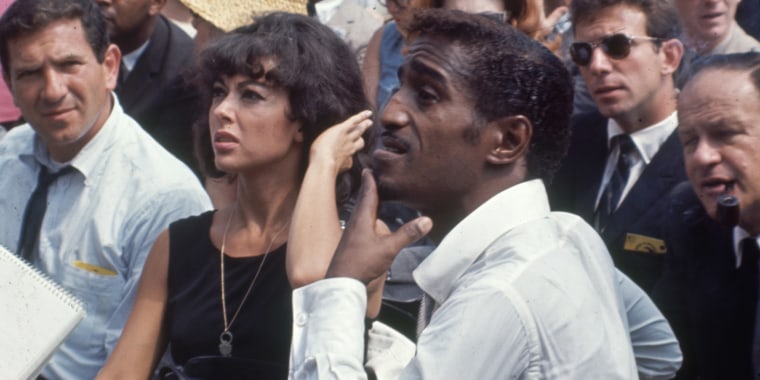
"I always had to have an accent, even though I spoke better English than many of the people (who hired me). The characters all sounded the same, because I had no idea how these nationalities sounded, but nobody else did either. It dismayed me; I began to feel demeaned, that my dignity was on the line. But I had to make a living and I had to be an actress. I was determined that, with perseverance and faith, at some point someone would say 'This girl has talent' and would cast me in something meaningful."
It happened with the 1961 "West Side Story," for directors Jerome Robbins and Robert Wise. Variety's review on Sept. 27, 1961, said she "presents a fiery characterization and scores hugely."
She says it was the first time she played a character who stood up for herself. "Interestingly, the character of Anita became my role model after all those years. Anita was a young Hispanic woman with dignity, self-respect and enormous strength."
The film earned 11 Academy Award nominations, winning most of them. Moreno was only the fifth Hispanic actor nominated. The day after she won, Variety wrote, "Undoubtedly the most emotional recipient was Rita Moreno ... She floated down the aisle in a happy daze and breathlessly told the audience. 'I can't believe it. Good Lord. I leave you with that.' "
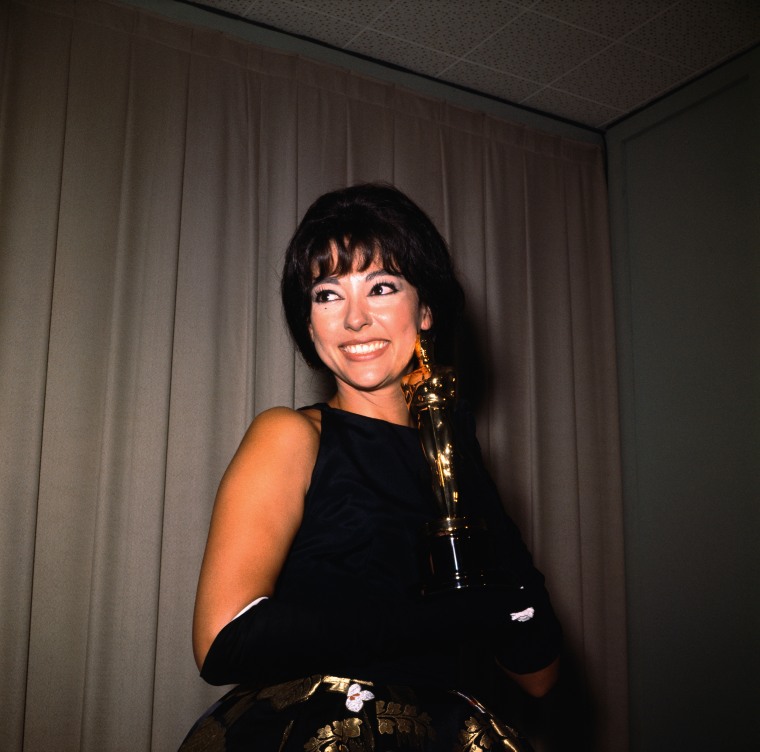
Surprisingly, it didn't open doors. In the seven years following the Oscar, she made few films, instead doing TV and stage work. She was cast onstage as Annie Sullivan in "The Miracle Worker," the first important role for her where ethnicity was not a requisite for the role.
Her bigscreen work included the 1969 "Night of the Following Day," opposite Marlon Brando, a former lover in a tempestuous relationship. Two years later, she was in the Mike Nichols-Jules Feiffer "Carnal Knowledge," with reviewer A.D. Murphy enthusing, "Miss Moreno's brief appearance is smashing."
She won three-fourths of her EGOT quartet in the 1970s, with a Grammy for the album of "The Electric Company" (1973), a Tony in 1975 for "The Ritz" and two Emmys: first for her guest appearance on a 1976 segment of "The Muppet Show" and then in a 1978 episode of "The Rockford Files."
Playwright Terrence McNally wrote the role in "The Ritz" specifically for her, based on a character she created at parties, of a singer-dancer whose confidence and thick accent outweigh her talent. She re-created the role of Googie Gomez in the 1976 film version of "The Ritz," directed by Richard Lester.
Meanwhile, she was appearing in PBS's "The Electric Company" (1971-77), ABC's sitcom "9 to 5" (1982-83), voicing the title character in Fox Kids' "Where on Earth is Carmen Sandiego" (1994-1999) and then in HBO's gritty prison series "Oz," as Sister Pete (1997-2003).
She debuted her one-woman show, "Life Without Makeup" at Berkeley Rep in 2011 after developing stage fright. "I'm terrified that I'll disappoint everybody. This at my age! How does that happen? And it happens to people even at my age and older ... Oh, we are so fragile, it's ridiculous!" she smiles.
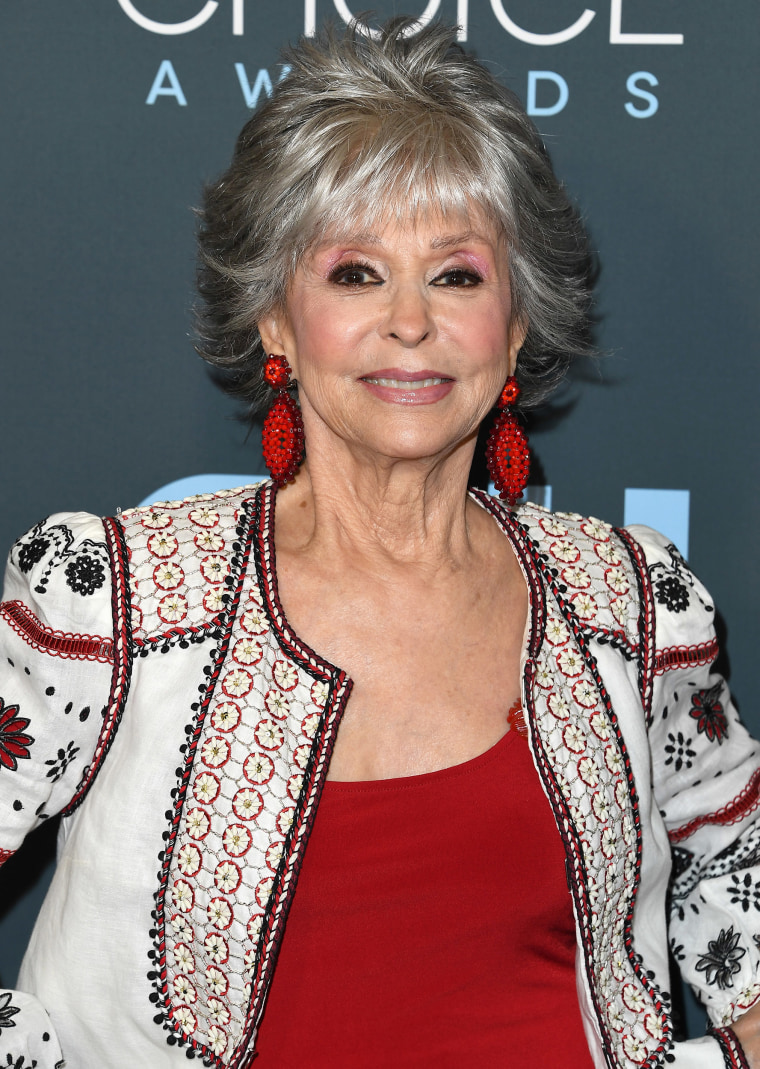
In a 2013 interview with Variety, she was forthcoming about the self-doubt that plagues all artists, but overwhelmingly upbeat, funny and playful.
Aside from her work, she talked about fundraising for children's organizations or arts centers like Berkeley Rep: "It's a wonderful way to serve and I need to serve. It's an instinct that says you're not the only person in this world, and not the only one with worries. And if you're in a position to help others who are less fortunate, you have a responsibility to help."
Moreno always felt that responsibility. She fought for equality on a national level (including the 1963 March on Washington for Jobs & Freedom) and on a personal level: "All my life I faced sexism and racism -- and then when I hit 40, ageism."
Asked in 2013 if she had any advice for executives in Hollywood about being more diverse, she shrugged, "I don't have anything to say to them. It's an understanding they have to come to on their own ... Oh, it's better, of course. But we still have a ways to go. But the best is yet to come."
